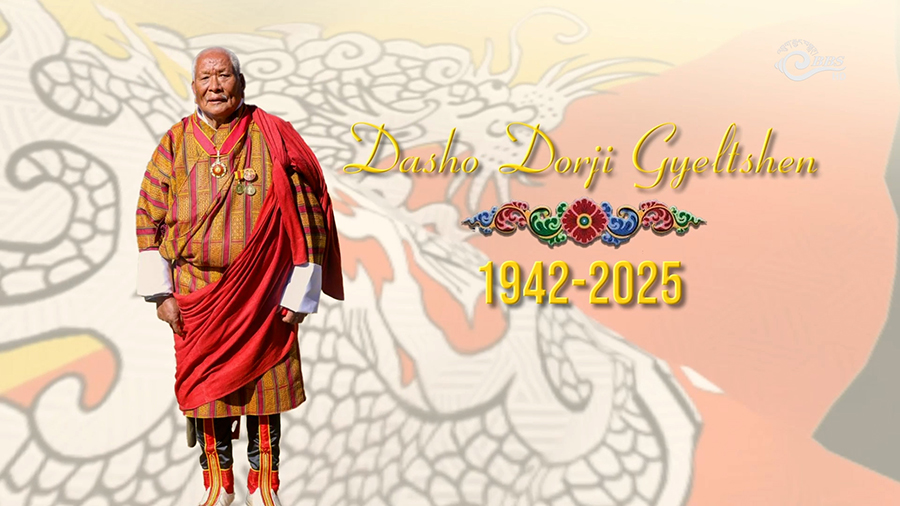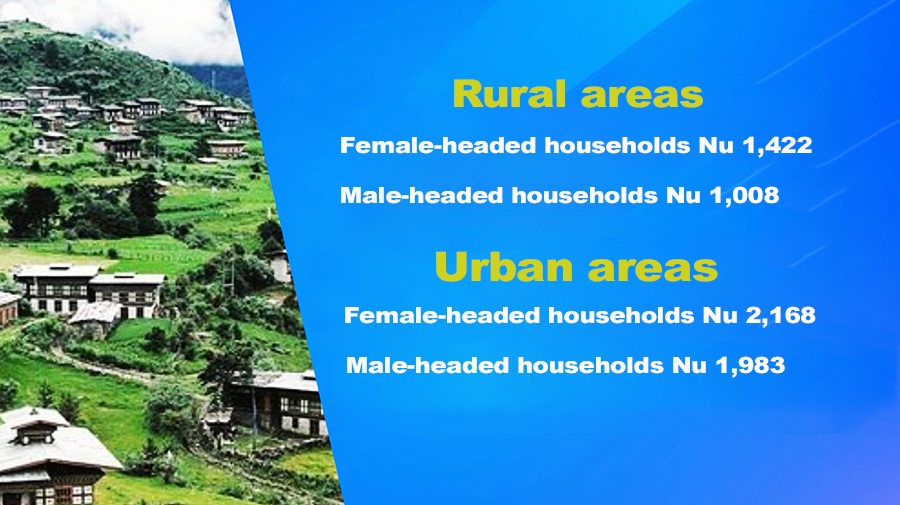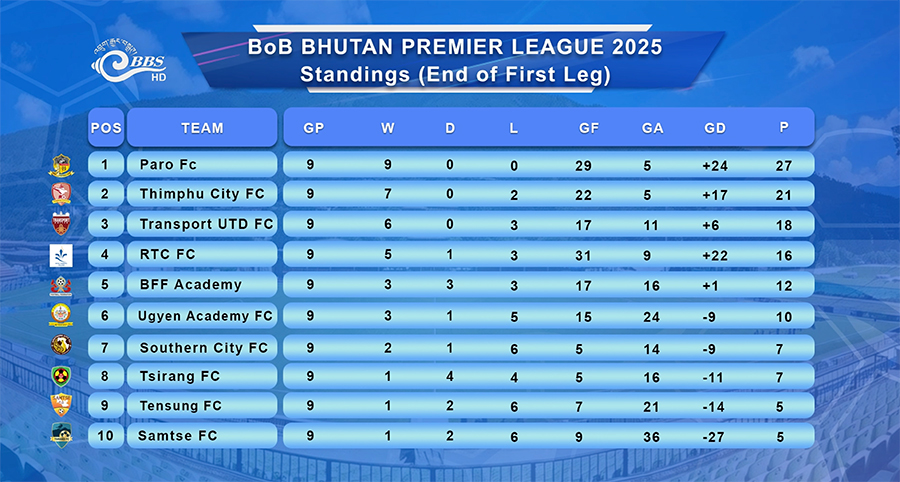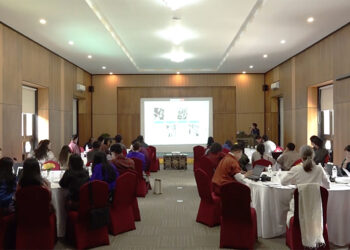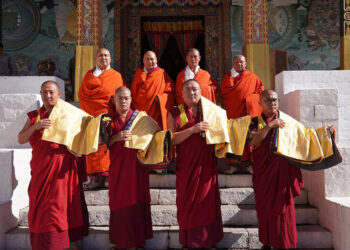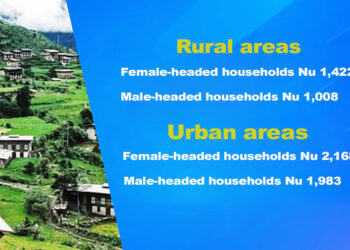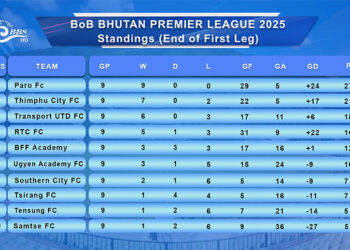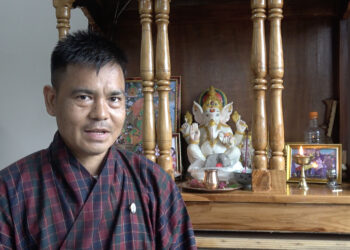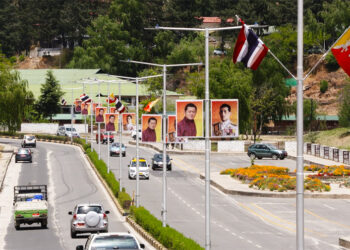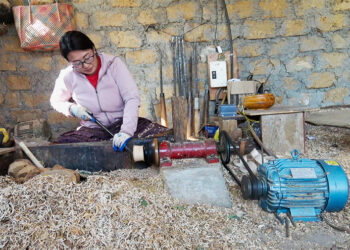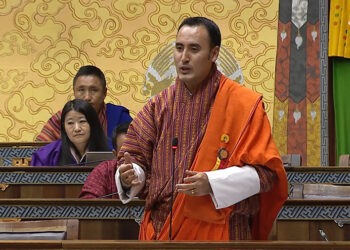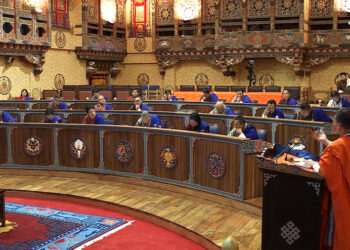Featured News
State funeral held for late Dasho Zimpon Dorji Gyeltshen, late Dasho chooses incineration over open-air cremation
The state funeral for late Dasho Zimpon Dorji Gyeltshen was held today. His Holiness the Je Khenpo presided over the...
Veteran archers compete one last time in spirit of tradition and tribute
As a heartfelt farewell to the sport they once dominated, some of Bhutan’s finest former archers returned to the archery...
Gyalsup homecomings spark joy and unity across Bhutan, with heartfelt reunions going viral on social media
In a wave of emotion sweeping across Bhutan, thousands of families are experiencing a homecoming unlike any other. Their sons...
From the King’s hand to the family’s altar
As the Gelephu Mindfulness City rises from vision to reality, it is not only bulldozers and blueprints that are shaping...
Thousands gathered at Kuenselphodrang to receive blessings from His Holiness the Je Khenpo and sacred relics from Thailand
Thousands of devotees flocked to Kuenselphodrang from as early as 3 AM today, eager to catch a glimpse of Their...
One rocket, thousand dreams; Pema Tsho Sakhu rewrites future for young Bhutanese innovators
At just 13 years old, Pema Tsho Sakhu, a Bhutanese student living in Australia, is already breaking barriers in space...
Bhutan prepares to welcome King and Queen of Thailand on state visit
Preparations to welcome Their Majesties King Maha Vajiralongkorn and Queen Suthida of Thailand are in full swing. Their Majesties will...
Centuries-old Londha festival in Dagana celebrates life, tradition and community
Bhutan's deep-rooted traditions and cultural heritage continue to thrive through vibrant local festivals, preserving the nation’s unique identity. Among them,...
RSPN’s drone initiative offers new hope for White-bellied Heron conservation
Drones may revolutionise White-bellied Heron conservation. The Royal Society for Protection of Nature (RSPN) tested drone technology to survey previously...
Breaking barriers in woodturning craft, Sangay Dolma’s journey of craftmanship
Being a woodturner, shaazop is not everyone’s cup of tea, especially not if you are a woman. But Sangay Dolma,...
Politics
Tashi Samdrup from BTP and Phuntsho Dendup from PDP to face off in Nubi-Tangsibji’s by-election
The Bhutan Tendrel Party has fielded former councillor Tashi Samdrup for the upcoming Nubi-Tangsibji by-election. He will be up against...
Popular
-
Bhutan rises to 84th in Henley Passport Index in 2025
-
RSEBL launches online system to facilitate claims of over Nu 87 M in unclaimed dividends and share proceeds
-
Bhutan’s first crawfish farm in Phuentshogling promises boost to aquaculture
-
Too young for boarding and no school nearby, nine children in Monggar’s Drogsar Chiwog stay home
-
BDBL to shut Bartsham field office, residents fear losing access to banking services
Casino en ligne avec mise en argent réel
Choisissez un casino en ligne avec argent réel pour jouer à vos jeux préférés et retirer vos gains en toute simplicité. Avec des options de paiement rapide et un environnement réglementé, vous bénéficiez d’un divertissement sûr et fiable.
NCWC and UNICEF call for stricter editorial standards in child reporting
Concerned about the potential harm of reporting stories on children, the National Commission for Women and Children (NCWC) and UNICEF...
Bhutan National Archery Championship enforces strict rules to boost safety and fair play
The ongoing Bhutan National Archery Championship 2025 is being held with a renewed focus on safety, fair play and discipline....
His Holiness the Je Khenpo confers Lekdhar to Chief of Mask Dances and three Lams
His Holiness the Je Khenpo conferred Lekdhar to the newly appointed Chief of Mask Dances of the Central Monastic Body...
State funeral held for late Dasho Zimpon Dorji Gyeltshen, late Dasho chooses incineration over open-air cremation
The state funeral for late Dasho Zimpon Dorji Gyeltshen was held today. His Holiness the Je Khenpo presided over the...
Zakar
Recent News
- NCWC and UNICEF call for stricter editorial standards in child reporting
- Bhutan National Archery Championship enforces strict rules to boost safety and fair play
- His Holiness the Je Khenpo confers Lekdhar to Chief of Mask Dances and three Lams
- State funeral held for late Dasho Zimpon Dorji Gyeltshen, late Dasho chooses incineration over open-air cremation
- Female-headed households spend more on education than male-headed ones
News Category
- Accidents
- Agriculture
- Announcement
- Audience Survey Report
- Business
- Crime/Legal
- Culture
- Development
- Disaster
- Economy
- Education
- Entertainment
- Environment
- Feature
- Featured
- Festival
- GMC
- Headlines
- Health
- HYDROPOWER
- Legal
- Literature
- Livestock
- Media
- Other Stories
- Politics
- RCSC
- Recent stories
- Religion
- Sci/Tech
- Social
- Sports
- Technology
- Tourism
- Uncategorized
- Video
- Video Story
- Wildlife
© 2024 BBSCL. All rights reserved.




